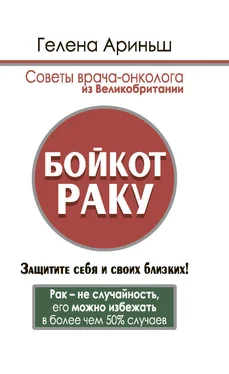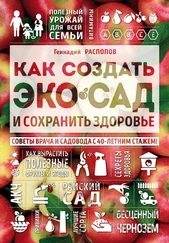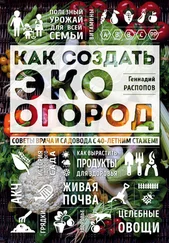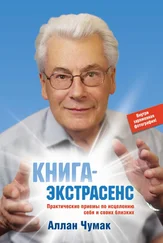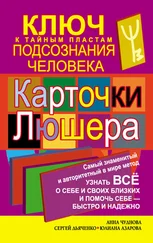123. Cano-Marquina A, Tarín JJ, Cano A. The impact of coffee on health. Maturitas. 2013 May; 75(1): 7–21.
124. Li G1, Ma D, Zhang Y, Zheng W, Wang P. Coffee consumption and risk of colorectal cancer: a meta-analysis of observational studies. Public Health Nutr. 2013 Feb; 16(2):346–57.
125. Wendy Setiawan V, Wilkens LR, Lu SC, Hernandez BY, Le Marchand L, Henderson BE.. Association of Coffee Intake with Reduced Incidence of Liver Cancer and Death from Chronic Liver Disease in the US Multiethnic Cohort. Gastroenterology. 2014 Oct 8. pii: S0016–5085(14)01200–1.
126. Wu H, Reeves KW, Qian J, Sturgeon SR. Coffee, tea, and melanoma risk among postmenopausal women. Eur J Cancer Prev 2014 Oct 16 [Epub ahead of print].
127. Malerba S, Galeone C, Pelucchi C, Turati F, Hashibe M, La Vecchia C, Tavani A. A meta-analysis of coffee and tea consumption and the risk of glioma in adults.Cancer Causes Control. 2013 Feb; 24(2): 267–76.
128. Yamada H, Kawado M, Aoyama N, Hashimoto S, Suzuki K, Wakai K, Suzuki S, Watanabe Y, Tamakoshi A; JACC Study Group. Coffee consumption and risk of colorectal cancer: the Japan Collaborative Cohort Study. J Epidemiol. 2014; 24(5): 370–8.
129. Weiderpass E, Sandin S, Lof M, Oh JK, Inoue M, Shimazu T, Tsugane S, Adami HO. Endometrial cancer in relation to coffee, tea, and caffeine consumption: a prospective cohort study among middle-aged women in sweden. Nutr Cancer. 2014 Oct; 66(7): 1132–43.
130. Harris HR, Bergkvist L, Wolk A. Coffee and black tea consumption and breast cancer mortality in a cohort of Swedish women. Br J Cancer. 2012 Aug 21; 107(5): 874–8.
131. Huang TB, Guo ZF, Zhang XL, Zhang XP, Liu H, Geng J, Yao XD, Zheng JH. Coffee consumption and urologic cancer risk: a meta-analysis of cohort studies. Int Urol Nephrol. 2014 Aug; 46(8): 1481–93.
132. Gavrilyuk O, Braaten T, Skeie G, Weiderpass E, Dumeaux V, Lund E. High coffee consumption and different brewing methods in relation to postmenopausal endometrial cancer risk in the Norwegian women and cancer study: a population-based prospective study.BMC Womens Health. 2014 Mar 25; 14:48.
133. Zamora-Ros R, Luján-Barroso L, Bueno-de-Mesquita HB, Dik VK, Boeing H, Steffen A, Tjønneland A, Olsen A, Bech BH, Overvad K, Boutron-Ruault MC, Racine A, Fagherazzi G, Kuhn T, Katzke V, Trichopoulou A, Lagiou P, Trichopoulos D, Tumino R, Panico S, Vineis P, Grioni S, Palli D, Weiderpass E, Skeie G, Huerta JM, Sánchez MJ, Argüelles M, Amiano P, Ardanaz E, Nilsson L, Wallner B, Lindkvist B, Wallström P, Peeters PH, Key TJ, Khaw KT, Wareham NJ, Freisling H, Stepien M, Ferrari P, Gunter MJ, Murphy N, Riboli E, González CA. Tea and coffee consumption and risk of esophageal cancer: the European prospective investigation into cancer and nutrition study. Int J Cancer. 2014 Sep 15; 135(6): 1470–9.
134. Hildebrand JS, Patel AV, McCullough ML, Gaudet MM, Chen AY, Hayes RB, Gapstur SM. Coffee, tea, and fatal oral/pharyngeal cancer in a large prospective US cohort. Am J Epidemiol. 2013 Jan 1; 177(1): 50–8.
135. Bhoo-Pathy N, Uiterwaal CS, Dik VK, Jeurnink SM, Bech BH, Overvad K, Halkjær J, Tjønneland A, Boutron-Ruault MC, Fagherazzi G, Racine A, Katzke VA, Li K, Boeing H, Floegel A, Androulidaki A, Bamia C, Trichopoulou A, Masala G, Panico S, Crosignani P, Tumino R, Vineis P, Peeters PH, Gavrilyuk O, Skeie G, Weiderpass E, Duell EJ, Arguelles M, Molina-Montes E, Navarro C, Ardanaz E, Dorronsoro M, Lindkvist B, Wallström P, Sund M, Ye W, Khaw KT, Wareham N, Key TJ, Travis RC, Duarte-Salles T, Freisling H, Licaj I, Gallo V, Michaud DS, Riboli E, Bueno-De-Mesquita HB. Intake of coffee, decaffeinated coffee, or tea does not affect risk for pancreatic cancer: results from the European Prospective Investigation into Nutrition and Cancer Study. Clin Gastroenterol Hepatol. 2013 Nov; 11(11): 1486–92.
136. Zheng JS, Yang J, Fu YQ, Huang T, Huang YJ, Li D. Effects of green tea, black tea, and coffee consumption on the risk of esophageal cancer: a systematic review and meta-analysis of observational studies.Nutr Cancer. 2013; 65(1): 1–16.
137. Braem MG, Onland-Moret NC, Schouten LJ, Tjønneland A, Hansen L, Dahm CC, Overvad K, Lukanova A, Dossus L, Floegel A, Boeing H, Clavel-Chapelon F, Chabbert-Buffet N, Fagherazzi G, Trichopoulou A, Benetou V, Goufa I, Pala V, Galasso R, Mattiello A, Sacerdote C, Palli D, Tumino R, Gram IT, Lund E, Gavrilyuk O, Sánchez MJ, Quirós R, Gonzales CA, Dorronsoro M, Castaño JM, Gurrea AB, Idahl A, Ohlson N, Lundin E, Jirstrom K, Wirfalt E, Allen NE, Tsilidis KK, Kaw KT, Bueno-de-Mesquita HB, Dik VK, Rinaldi S, Fedirko V, Norat T, Riboli E, Kaaks R, Peeters PH. Coffee and tea consumption and the risk of ovarian cancer: a prospective cohort study and updated meta-analysis.Am J Clin Nutr. 2012 May; 95(5): 1172–81.
138. Michikawa T, Inoue M, Shimazu T, Sasazuki S, Iwasaki M, Sawada N, Yamaji T, Tsugane S. Green tea and coffee consumption and its association with thyroid cancer risk: a population-based cohort study in Japan.Cancer Causes Control. 2011 Jul; 22(7): 985–93.
139. Ganesh B1, Sushama S, Monika S, Suvarna P. A case-control study of risk factors for lung cancer in Mumbai, India. Asian Pac J Cancer Prev. 2011;12(2):357–62.
140. Wang Y, Yu X, Wu Y, Zhang D. Coffee and tea consumption and risk of lung cancer: a dose-response analysis of observational studies.Lung Cancer. 2012 Nov;78(2):169–70 .
141. Tang N, Wu Y, Ma J, Wang B, Yu R. Coffee consumption and risk of lung cancer: a meta-analysis. Lung Cancer. 2010 Jan; 67(1): 17–22.
142. Wendy S, Wilkens L, Lu S, Hernandez B, Le Marchand L, Henderson B. Association of coffee intake with reduced incidence of liver cancer and death from chronic liver disease in the US multiethnic cohort. Gastroenterology 2014 Oct 8. Doi: 10.1053/j.gastro.2014.10.005 (Epub ahead of print).
143. Cheng-Chin H, Wei-Ting L, Sen-Tien T, Chun-Yen O, Hung-I L, Tung-Yiu W, et al. Tea consumption and risk of head and neck cancer. Plos One 2014; 9 (5): e96507.
Слово «никотин» происходит от имени Jean Nicot dе Villmain, мужчины, который привез его во Францию в 1560 году. Хотя он не был первым, кто ввез никотин в Европу, тем не менее именно его именем воспользовались, чтобы дать название этой токсичной субстанции.
Содержится это вещество в листьях табака – растения, происходящего из Южной Америки. Древние люди начали активно использовать табак около восьми тысяч лет назад.
Были найдены упоминания о жевании табака, питье табачного сиропа, лизании табачной пасты, использовании табачных листьев в клизмах, а также локальных аппликациях табака на кожу и глаза.
Табачные листья содержат вещества харман и нонхарман, которые по составу очень близки к хармину и хармалину – сильнейшим галлюциногенам. Таким образом, при использовании табака индейцы испытывали самые разные ощущения, включая галлюцинации.
Читать дальше
Конец ознакомительного отрывка
Купить книгу
